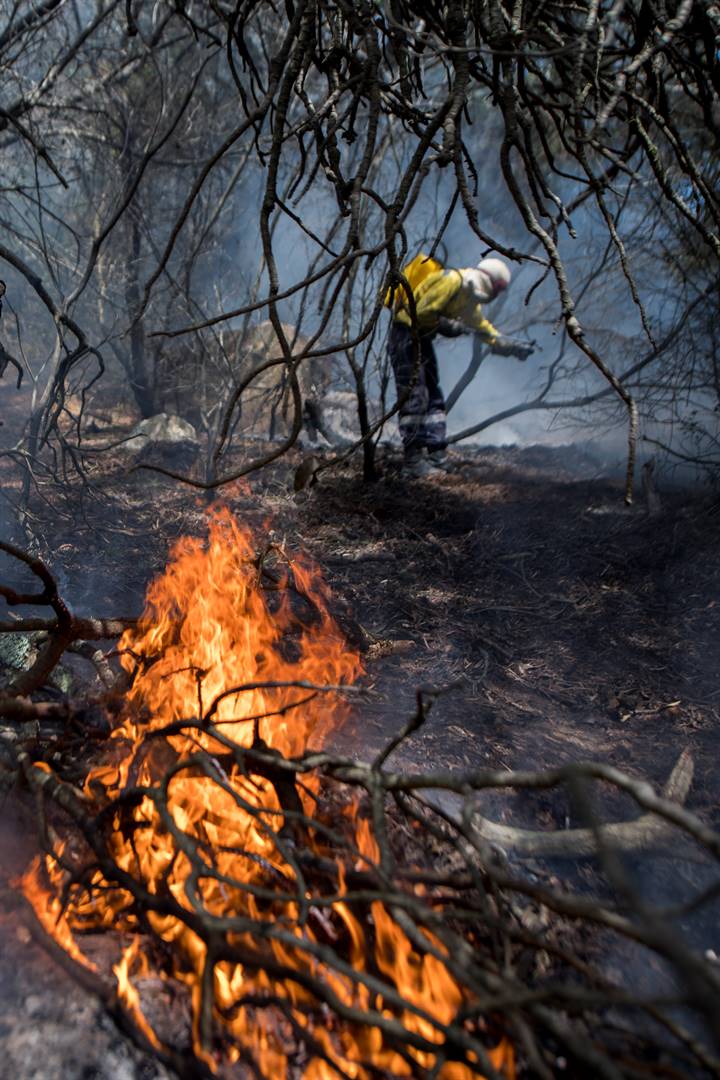“Change is coming, whether you like it or not.”
At the annual UN climate conference in December, a 15-year-old teenager from Sweden, Greta Thunberg, stood up and calmly gave world leaders a roasting about their lack of action regarding the climate crisis. She’s now 16 and is still at it.
She called for “politicians, the media and our society [to] start treating the climate crisis as the crisis it is”.
It was the end of a long year full of frightening red flags that signalled the disruption of the climate we have comfortably lived with for millennia.
Cape Town and surrounding areas faced “day zero” not so long ago as dams dried up. Drought still lingers for farmers in the Karoo and towns like Beaufort West, and they are facing the “worst drought in living memory”.
Wildfires roared through the Cape and in California in the US – they may be set off by arsonists or thoughtless men with marine flares, but dried-up vegetation and desiccated soil turbocharges them.
Extreme weather events, like the storm in December that blanketed Sun City in North West in hail, have been gathering pace for years.
In March last year, InsideClimateNews wrote: “Floods and big landslides have quadrupled, and extreme heat waves and crop-damaging droughts have doubled since 1980, with a sharp spike in the past five years.”
Last year, Michael Mann, a professor and atmospheric scientist at Penn State University in the US, wrote: “There’s no question in my mind that, in the unprecedented extreme weather that we’ve seen over the past year, we can see the fingerprint of human influence on our climate.”
So we hear you, Greta. Any responsible media organisation should and must play its part by informing the public about the implications of the climate crisis.
While readers may have seen stories about greenhouse gases (particularly carbon dioxide and methane) blanketing the planet and raising temperatures, melting ice and causing sea levels to rise, in this series of articles, City Press is going to take a look at how our changing planetary climate will directly affect you.
It’s too hot
As I sweltered at my desk in Johannesburg during mid-December’s heatwave, I kept remembering Third World’s reggae hit from 1977 called 96 Degrees in the Shade. The lyrics included the line, “Real hot! in the shade”.
The song paid tribute to George Gordon, who was hanged after the Morant Bay Rebellion on a sultry, humid October day in Jamaica in the 19th century.
In the US, Fahrenheit is the scale used for measuring temperature – 96°F is about 35°C, so it was about as hot as the heatwave we were experiencing in Gauteng. I wondered if the heat of that distant October had had anything to do with stirring rebellion.
Don’t laugh – it’s not as big a stretch of the imagination as you might think. A number of studies have linked heat to aggression and violence.
We know quite a lot about how heat affects us physically. South Africa was the site of pioneering research in this regard – about 65 years ago, Dr CH Wyndham tested the work capacity under very hot conditions of young mineworkers in Johannesburg, and developed an acclimatisation protocol for them.
A decade ago, Professor Angela Matthee, a director at the SA Medical Research Council, piloted local research into heat and productivity, which concluded that, “in Upington in the Northern Cape, where daily maximum temperatures may reach more than 40°C, workers reported a wide range of heat-related effects, including sunburn, sleeplessness, irritability and exhaustion, leading to difficulty in maintaining work levels and output during very hot weather”.
Mean and mad
Irritability? It’s simple common sense – of course you’re irritable in the heat. But how badly does it affect your mood? Senior specialist scientist at the SA Medical Research Council, Dr Caradee Wright, points out that we have little local science on the impact of high temperatures on mental wellbeing.
But it’s something we should understand and plan for because, in Johannesburg, for example, we’re already experiencing an increase in hot days where the average temperature is above 27°C, which is expressed as Hda2 in this paper from Dr Rebecca Garland of the Council for Scientific and Industrial Research: “In present-day climate, Johannesburg is modelled to have 34.5 Hda2 per year on average from 1961 to 1990. From 2011 to 2040, Johannesburg is projected to have an increase of 35 Hda2 on average per year; this would give a total of 69.5 Hda2 on average per year in 2011 to 2040.”
This is twice as many “real hot” days as we’re used to, which probably means we’ll be lying around panting for a third of the summer – what will that do to the mood of the citizenry in the city?
We can look to a large body of work done overseas to understand the mental impact. There are multiple studies that show quite clearly what we all intuitively know – heat triggers irritability, bad tempers and violence.
And it doesn’t even have to be “96 degrees in the shade”. One study that focused on Dutch police officers showed that, at 27°C (only 81°F), 85% of the officers were likely to pull a gun in a hostile situation, as opposed to 59% of those facing the same aggressive suspect when the temperature was 21°C.
Researchers have looked at real-life situations and looked at whether violence rises with temperatures by comparing historic records of weather with crime rates in the same time period and same geographical area, such as a big city. The answer? Yes.
The climate crisis may also have a more indirect, long-term but worrying affect on how people behave. It is already affecting food security in southern Africa, with less rain and more reported droughts in recent decades, as researchers Gina Ziervogel and Bruce Frayne report, leading to “significant food shortages”.
South Africa has been food secure for years, but, for many other reasons, hunger stalks too many of us already (one in four children younger than five is stunted due to malnutrition). If global heating robs us of fertile soil and water to grow food, our farmers will battle to grow enough for us to eat.
Researcher Jianghong Liu has noted that “poor nutrition negatively impacts on brain areas that play important roles in developing positive social behaviour”.
This means that really hot weather could descend on a country where a significant slice of the population, through absolutely no fault of their own, is less mentally resilient and less able to make positive choices.
What can we do?
Vote for parties that have detailed, substantial polices aimed at fighting and adapting to the climate crisis.
Demand more of your local politicians. We need to exercise our brain cells when it comes to city planning.
What is in place to provide relief from the heat? Right slap bang in the middle of that awful heatwave in December, the city of Ekurhuleni closed all its public swimming pools because staff were on leave.
We need safe, accessible shaded places throughout our cities; water must be publicly available; public transport must be air-conditioned; and there should be by-laws regarding temperatures within spaces used by the public, for example, malls.
Bear the mental health risks of higher temperatures in mind when you come up against a frazzled motorist who may not have air-con in their vehicle; and watch for signs of irritability in yourself. Try not to take it out on those around you. Talk about it with friends, employees, employers, colleagues, spouses and children.
Let’s also have a national conversation about nutrition. If we are food secure as a nation (which we currently are), why do so many children suffer from malnutrition?
What can we – as citizens, as local officials, as national government and as businesses – do about it?
It’s important for the future mental and physical wellbeing of all of us that every South African child has a tummy full of densely nutritious food every day.




 Publications
Publications
 Partners
Partners









